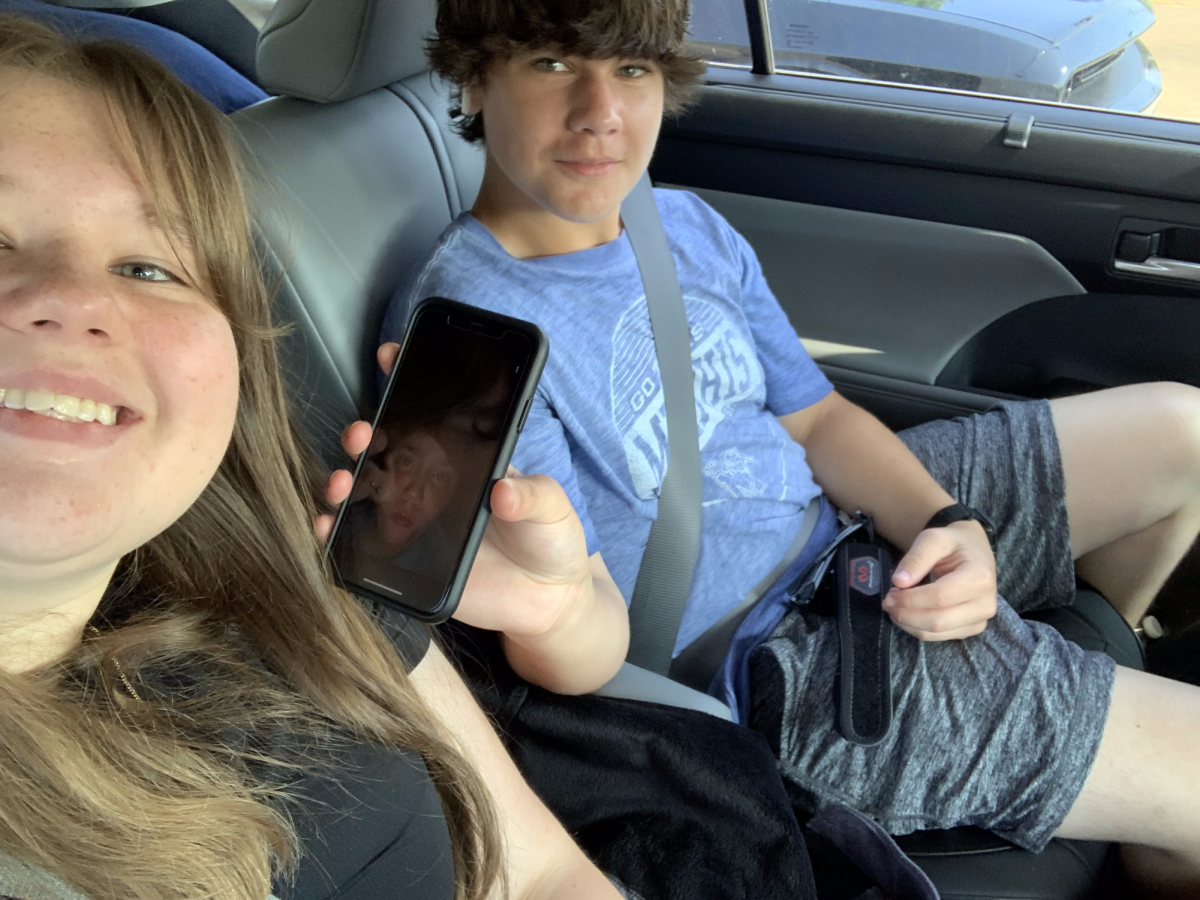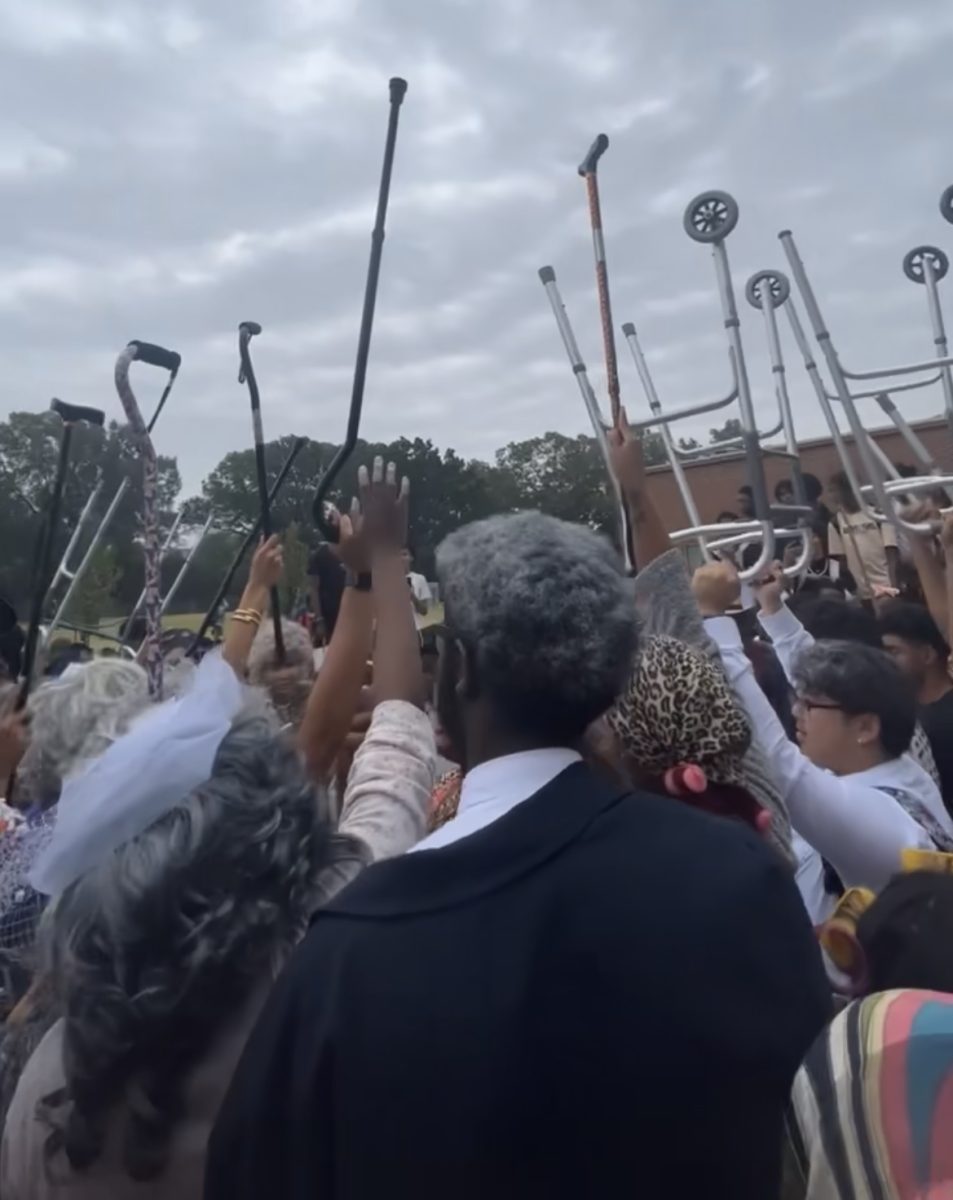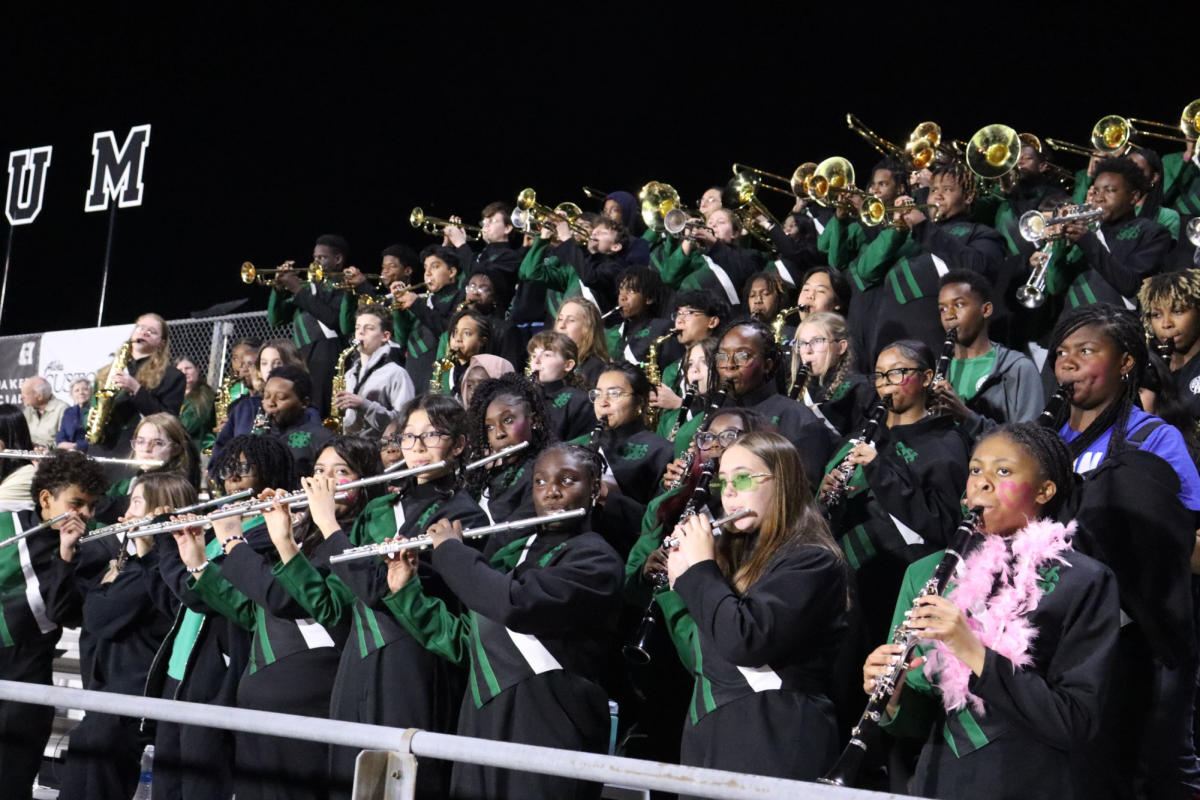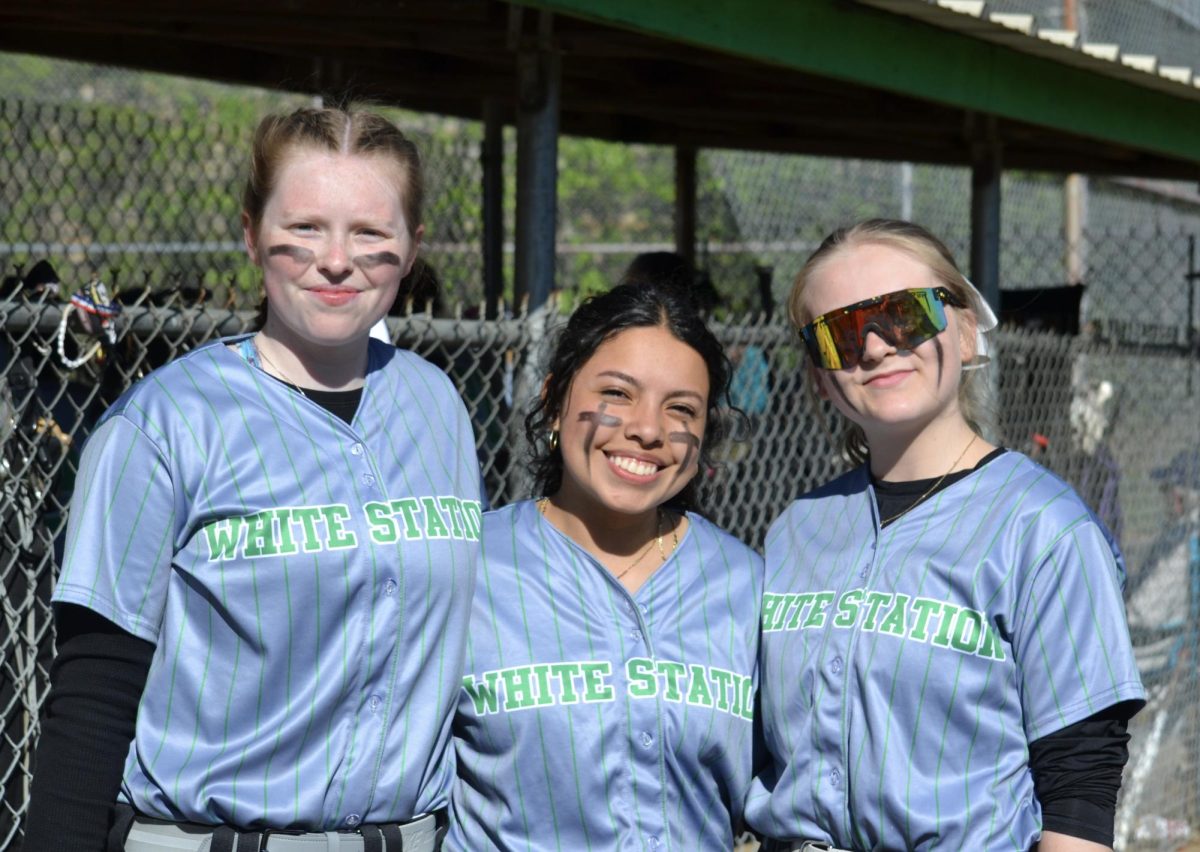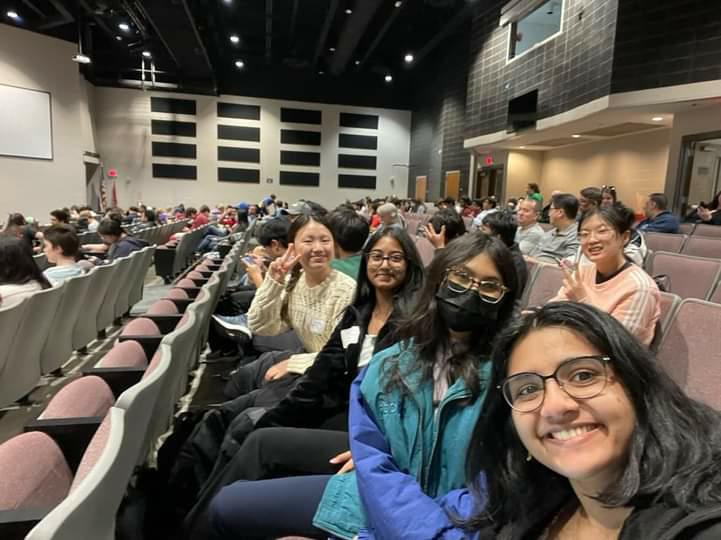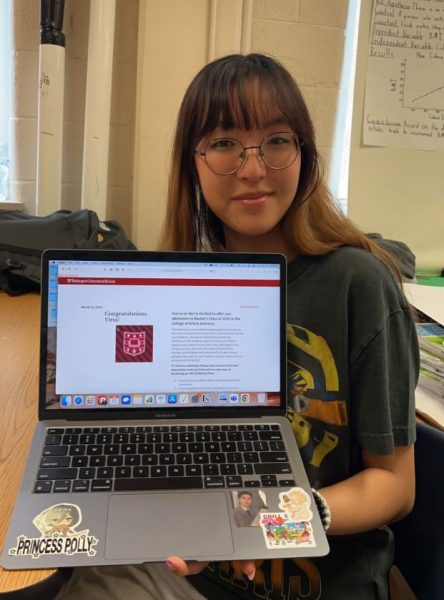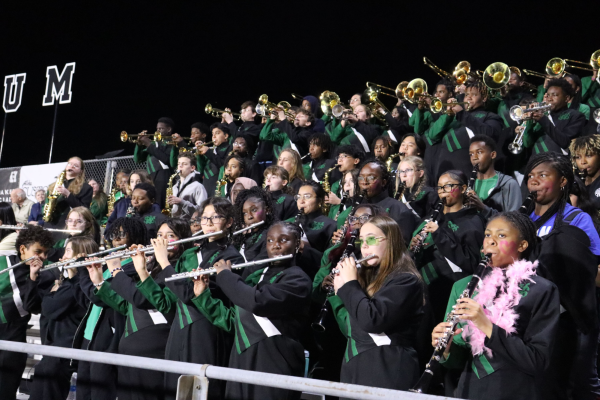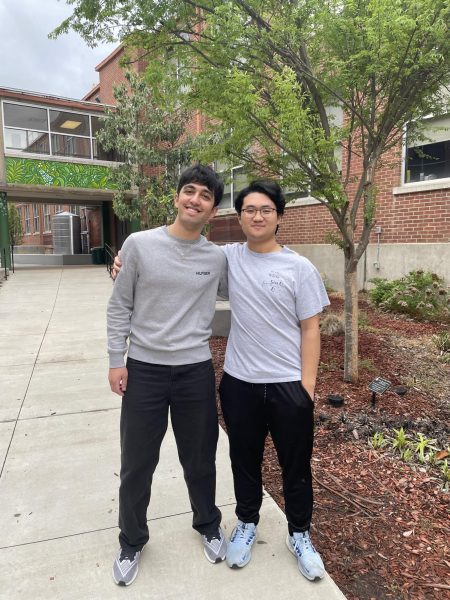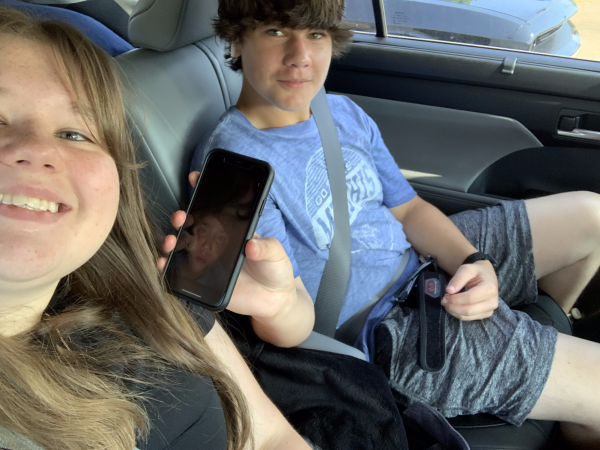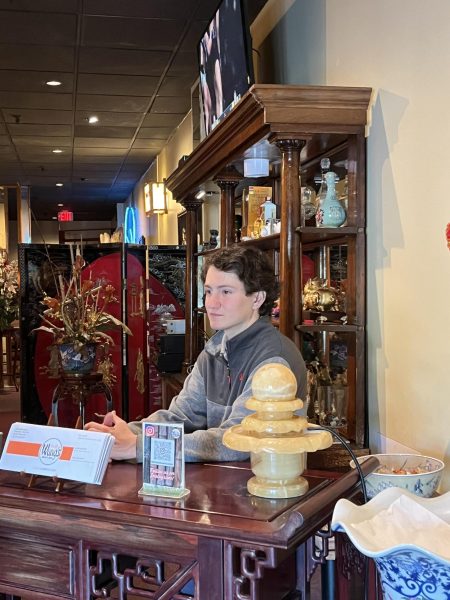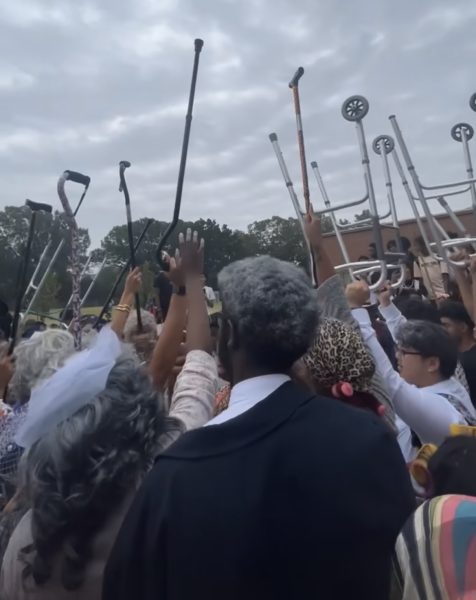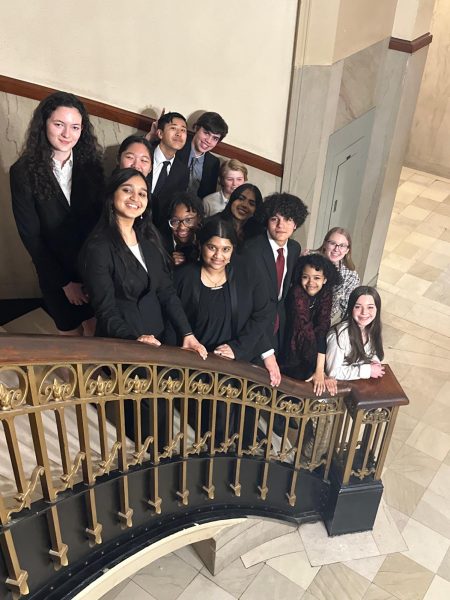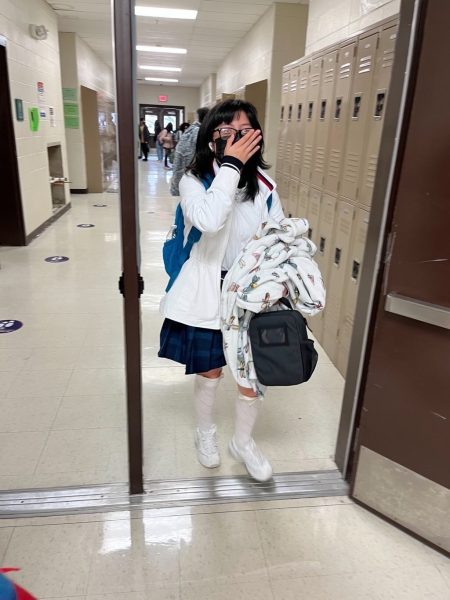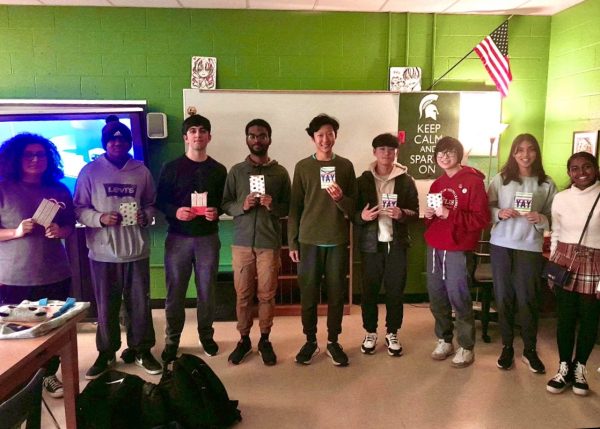Science Olympiad team crushes state competition
SHANIYA THOMAS//USED WITH PERMISSION
From top left to bottom right, Amy Zhang (10), Shaniya Thomas (12), Spoorthi Marada (12), Chitkala Alli (11), and Lena Zeng (11) take a picture in the auditorium of John Hopkins High School. This snapshot was taken during the award ceremony.
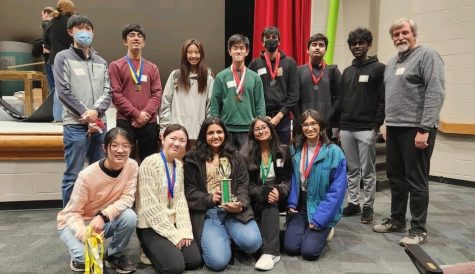
(SURESH MARADA//USED WITH PERMISSION)
The Science Olympiad Club is the ideal culmination of Science, Technology, Engineering and Math (STEM) for students like Lena Zeng (11), Amy Zhang (10) and Aashish Chidambaram (11). When competing, these members choose events spread throughout categories such as Life, Personal and Social Science; Earth and Space Science; Physical Science and Chemistry; Technology and Engineering and Inquiry and Nature of Science.
“There’s a lot of different fields of events,” Chidambaram said. “There’s basically just everything in STEM.”
15 students participated in events at the John Overton Invitational in Nashville, Tenn. on Jan. 28. This came after they made it past regionals and qualified for the state competition. The team placed second overall and competed in a total of 22 events. Having competed first in an invitational at Arlington High School, this competition serves as the team’s second this year.
“You compete for regionals, and you have to place in the top three to make it to state,” Zeng said.
Science Olympiad is more than just a regular science club for these students. It is a place for them to make like-minded friends and also form different types of models to demonstrate scientific principles.
“It’s a fun way to experience different aspects of the STEM field,” Chidambaram said. “And it’s just a way to have fun with friends while, you know, being productive.”
Everyone pulls their weight when they participate in different events. Chidambaram specializes in three events: Anatomy and Physiology; Trajectory and Flight. Zeng contributes to Wi-Fi lab, Detector Building and Forensics. Lastly, Zhang competes in Astronomy, Bridge, Rocks and Minerals and Remote Sensing.
“With the build event, you’re supposed to build together, and then for the study events — you work together to create either the binder or the cheat sheet,” Zhang said. “But it’s self study after that.”
There are many science focused classes at school, but students often do not get the hands-on experience they gain in Science Olympiad.
“It introduces you to other topics you could be interested in,” Zhang said. “Such as astronomy [and] there’s rocks and minerals; school doesn’t really have subjects like that. So, if you want to delve into more hyper-specific topics, then Science Olympiad is a good route for that.”
The Science Olympiad club not only helps members achieve academic prosperity, but also build on other valuable character traits.
“Science Olympiad is a team building club that promotes collaboration and creativity among students,” Zeng said.
Some remark that even already having friends in the club, coming together for competitions and bi-weekly meetings drives them to bond even closer.
“I think my favorite part is staying up late after school to finish builds or going out to eat with team members, just bonding longtime,” Zeng said.
Similarly, Zeng states that the best part of the club is getting to interact with the other members. Zhang enjoys the companionship as well, but what’s equally important to her is the thrill of competition.
“I enjoy the thrill of things,” Zhang said. “I like that rush of excitement you get when you compete.”
That thrill only comes after endless studying and testing of models in Dr. Chikezie Madu’s room — the place where they meet. Near competition day, team members meet almost everyday after school to go over strategies and make sure nothing is missing.
“There were a bunch of questions for some of my events that I was like, ‘I did not know I had to know that,’” Chidambaram said. “So, it’s just [that] some of the studying is definitely a lot.”
Your donation will support the student journalists of White Station High School. Your contribution will allow us to purchase equipment and cover our annual website hosting costs.



